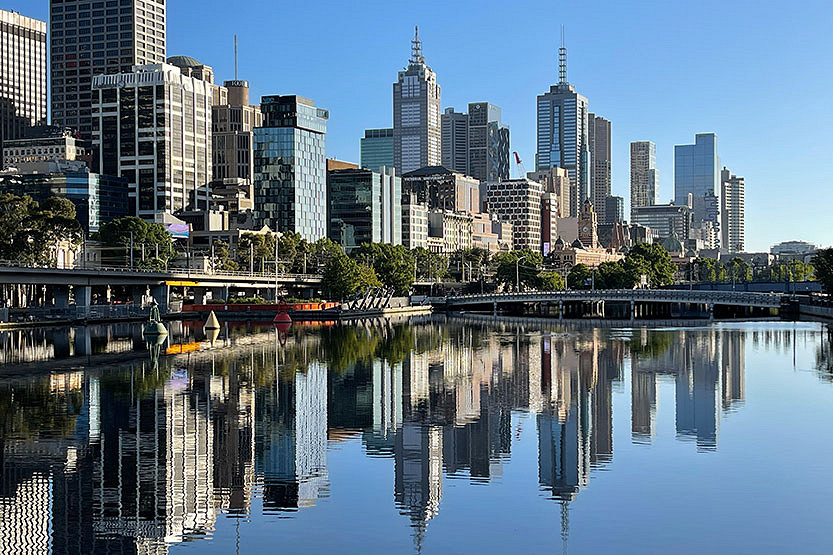
Businesses fight against “bed tax” as government seeks to curb short stays
The state government is considering a tax on short-stay accommodation in a bid to curb the state’s housing crisis, but Victoria’s peak tourism body and local businesses say the proposal would be a major impediment to the sector’s post-pandemic recovery.
Reports emerged shortly following the government’s announcement that it would no longer be hosting the 2026 Commonwealth Games last month that accommodation providers could be charged a $5 tourism levy under a new proposal to tackle the housing crisis.
According to short-stay accommodation watchdog Inside Airbnb, more than 6700 apartments are currently listed on the short-term rental market in the City of Melbourne alone, with a high concentration of listings in Southbank, Docklands and the CBD.
While the state government hasn’t confirmed whether it will proceed with the new tax, in June the Victorian Greens proclaimed they had “secured a commitment” from the government on renter safeguards.
According to a statement released by the party, this followed weeks of “constructive negotiations”, in which the Greens demanded the government take action on the housing crisis to ensure their support for the State Taxation Acts Amendment Bill 2023.
As an outcome of the negotiations, Treasurer Tim Pallas wrote to the Greens outlining an urgent task force the government had convened to investigate the housing crisis and how it can be addressed.
This task force will actively consider all three of the renter safeguards put on the table by the Greens, including rent controls (such as a cap on rent increases), regulation of the short-stay industry, and “strengthening the state’s vacancy tax”.
Sam Hibbins, Greens MP for Prahran, which takes in a portion of Southbank, welcomed the move by the government arguing that “renters were ignored in the recent state budget.
“Without government action, rents are going to continue to go up and up, pushing renters into homelessness and housing insecurity,” Mr Hibbins said.
People who rent their home need urgent reforms to address the housing crisis and can’t afford another year of government inaction.
But while any move aimed at tackling the housing crisis has broad support, the Victorian Tourism Industry Council (VTIC) condemned the move as “purely and simply a bed tax on Victorian consumers” that unfairly threatens “traditional accommodation providers”.
VTIC CEO Felicia Mariani said it would be “rigorously advocating against any such measure that implements what constitutes a bed tax in Victoria”, labelling the proposal as an “outrageous impost” on the industry.
“Overnight stays are crucial to every sector of our industry and anything that adversely affects the attractiveness of our state in this regard is simply not acceptable,” Ms Mariani said.
“While the ‘tourism levy’ is being proposed to curtail the critical impact that short-stay/homestay accommodation is having on the supply of housing stock available for long-term rental purposes, this tax is being proposed on ALL forms of commercial accommodation, including traditional accommodation providers across our state.”
“VTIC has long acknowledged that measures need to be taken to address the shortage of housing for long-term leasing with the proliferation of private homes being made available on various short-stay platforms; but the traditional accommodation sector does not play a part in contributing to this issue. Traditional commercial accommodation does not remove private housing stock from the supply of long-term rentals and should not be wrapped up in this discussion.”
While Airbnb has been quoted in the news as supporting a tourism levy in the state, let’s be clear, this tax does not affect their business model as it will merely be passed on by the property hosts for their guests to pay.
“This is purely and simply a ‘bed tax’ on consumers in Victoria who are travelling around our state and will only serve to impact on Victoria’s competitiveness with other states at a time when we can least afford roadblocks to impede our recovery.”
Yarra River Business Association president Jeremy Vincent said any such proposal could threaten Victoria’s “competitive edge”.
“With many accommodation providers in our precinct, this change is going to have a significant impact on tourism. And, particularly given Victoria would be the only state in Australia to have such a tax, it means we would lose our competitive edge.” •

Revitalisation of Alexandra Gardens progresses

Build-to-rent development gets green light in South Melbourne






 Download the Latest Edition
Download the Latest Edition